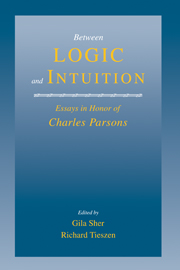Book contents
A Theory of Sets and Classes
Published online by Cambridge University Press: 02 December 2009
Summary
The nature of classes – particularly proper classes, collections “too large” to be sets – is a perennial problem in the philosophy and foundations of set theory. Logicians worry that the unrestricted quantifiers of set theory must range over the collection of all sets, a collection that cannot itself be a set, and hence, a collection that is ill-understood; philosophers puzzle over the existence of properties (such as x ∉ x) that seem to have no extensions; set theorists ponder heuristic arguments that involve performing operations on the entire universe, V, of sets as if it were a set. Existing theories of sets and classes seem unsatisfactory because their ‘proper classes’ are either indistinguishable from extra layers of sets or mysterious entities in some perpetual, atemporal process of becoming. In the spirit of Cantor's bold introduction of the completed infinite, we might hope for a theory of sets and classes that both distinguishes plausibly between the two and treats classes as bona fide entities. In the end, this may be too much to ask, but it seems at least the right place to begin.
Several of Charles Parsons' papers have addressed the difficult problem of sets and classes in insightful and influential ways. One central thrust of his treatment has been to emphasize the strong analogy between paradoxes of truth, such as the liar, and paradoxes of classes, such as Russell's paradox.
Information
- Type
- Chapter
- Information
- Between Logic and IntuitionEssays in Honor of Charles Parsons, pp. 299 - 316Publisher: Cambridge University PressPrint publication year: 2000
Accessibility standard: Unknown
Why this information is here
This section outlines the accessibility features of this content - including support for screen readers, full keyboard navigation and high-contrast display options. This may not be relevant for you.Accessibility Information
- 5
- Cited by
